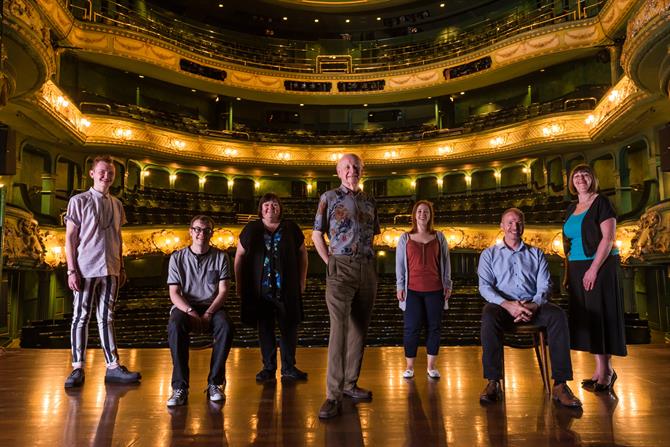
February 23, 2016, by Guest blogger
A Nottingham Night’s Dream
Peter Kirwan previews an exciting collaboration between the Royal Shakespeare Company and Nottingham’s very own Lovelace Theatre.
The Royal Shakespeare Company’s 2016 production of A Midsummer Night’s Dream is an unusual and very special event. The production (which had its press night in Stratford this month) features a star case of professional actors as the fairies and lovers, but the Mechanicals – the endearing amateur troupe who try to put on a play for Duke Theseus – are being played by amateurs. Further, as the play leaves Stratford and goes out on tour, it will be joined by a new amateur theatre company in every city in visits – including Nottingham.
Lovelace Theatre are based in Hucknall, and actually put on their own production of A Midsummer Night’s Dream in May 2014 at the John Godber Centre on Ogle Street. This was the company’s first-ever Shakespeare production in a history stretching back to 1969 (excepting a 1989 performance of Macbeth for the Farndale Housing Estate Town’s Women’s Guild Dramatic Society). Their second Shakespeare will involve them sharing the stage with the RSC at Nottingham’s Theatre Royal and Stratford-upon-Avon’s Royal Shakespeare Theatre, in front of audiences of thousands.
The idea of having a local amateur company play the Mechanicals is an inspired one, which goes back to the roots of the characters themselves. Shakespeare’s depiction of these amateur players is rooted in nostalgia for medieval traditions of playing, such as those of the regional mystery cycles. For these religious festivals, guilds of workers would group together, each guild taking on a story that fitted their craft – the Pinners (nail-makers) performing the Crucifixion, or the Carpenters depicting the building of Noah’s Ark.
While the medieval players were clearly very skilled, they weren’t professional actors, and their performances were rooted in their association with the local community and with their trade identities. In this tradition, the community came together to tell stories as a collective, celebrating their own town and relationships while also creating a distinctive, regional version of their religious narratives.
Shakespeare wrote for the professional theatre, with actors whose day job was precisely that – acting. But when he brought the Mechanicals into the world of A Midsummer Night’s Dream, he was paying tribute to the ingenuity, passion and aspiration of the amateur performers who put down their tools for a few days every year to perform the profound stories of Creation, Passion and Revelation. Although the Mechanicals themselves arguably tie themselves in knots trying to achieve professional standards, they succeed best when being themselves; as Theseus says, ‘Love, therefore, and tongue-tied simplicity / In least speak most, to my capacity’.
When Lovelace take the stage at the Theatre Royal in Nottingham in May, they will be entering into a long and illustrious history of Shakespearean performance in Nottingham that a team in the School of English (including my colleagues Jo Robinson and Hannah Manktelow) is working to trace and promote. Amateurs and professionals will be celebrating Shakespeare’s play; but Lovelace’s very presence on the stage will also be a celebration of Nottingham itself. We’re looking forward to working more with Lovelace in the coming months, and to cheering on the home team in May.
No comments yet, fill out a comment to be the first

Leave a Reply